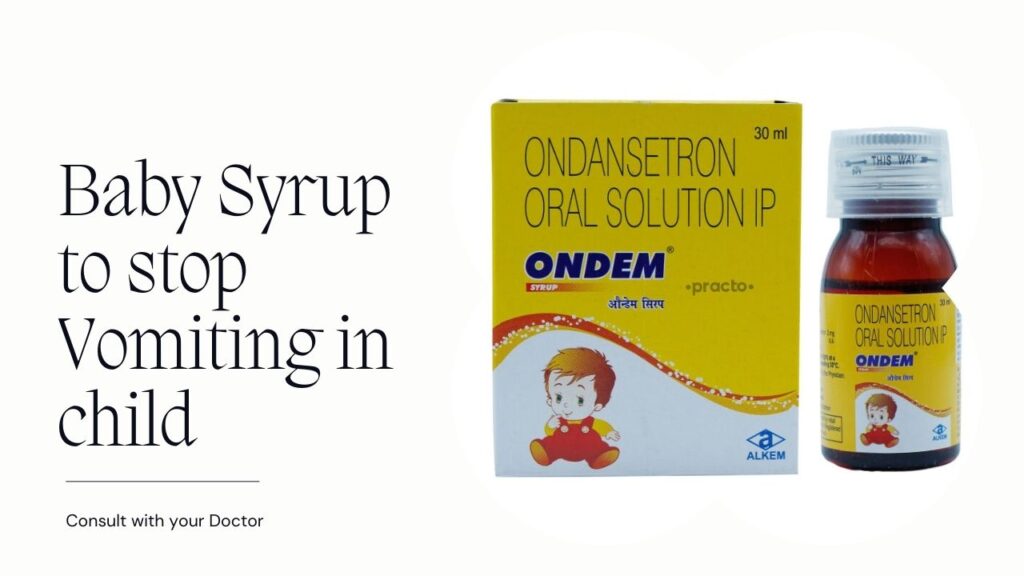Dealing with a vomiting child can be a challenging experience for any parent. Whether it’s due to a stomach bug, food intolerance, or another underlying issue, seeing your child in distress can be worrying. In such situations, many parents turn to remedies like syrup to stop vomiting in a child. In this article, we’ll explore the uses, safety considerations, and alternative options when it comes to using syrup to alleviate vomiting in children.

Understanding Syrup to Stop Vomiting in Child:
Syrups marketed to stop vomiting in children typically contain ingredients that aim to soothe the stomach or suppress the urge to vomit. These may include:
- Antiemetics: These are drugs that help prevent or relieve nausea and vomiting. They work by blocking signals to the brain that trigger vomiting.
- Antacids: These medications help neutralize stomach acid and may be used to alleviate symptoms of acid reflux or gastroesophageal reflux disease (GERD), which can sometimes cause vomiting.
- Probiotics: Certain probiotic strains have been studied for their potential to support digestive health and reduce symptoms like vomiting, especially in cases of gastrointestinal upset.
Safety Considerations:
While syrup to stop vomiting in a child may seem like a convenient solution, it’s important to use such products with caution and under the guidance of a healthcare professional. The following safety factors should be remembered:
- Age-appropriateness: Many over-the-counter vomiting syrups are not recommended for use in infants or very young children. Always check the label for age recommendations and consult with your child’s pediatrician before giving any medication.
- Potential side effects: Like any medication, vomiting syrups can have side effects, including drowsiness, dizziness, or gastrointestinal disturbances. Be sure to read the package insert carefully and discuss any concerns with your child’s doctor.
- Underlying causes: While syrup may provide temporary relief from vomiting, it’s essential to address the underlying cause of your child’s symptoms. Persistent vomiting can indicate a more serious condition that requires medical attention.
- Proper dosing: Follow the recommended dosage instructions provided by the manufacturer or your child’s healthcare provider. Never exceed the recommended dose, and use a measuring device to ensure accurate dosing.
Alternative Options:
In addition to syrup, there are several alternative strategies you can try to help alleviate vomiting in your child:
- Hydration: Encourage your child to drink small amounts of clear fluids, such as water, oral rehydration solutions, or electrolyte drinks, to prevent dehydration.
- BRAT diet: The BRAT diet (bananas, rice, applesauce, and toast) is often recommended for easing stomach upset and may help settle your child’s stomach.
- Rest: Ensure your child gets plenty of rest to help their body recover from illness.
- Natural remedies: Some parents find success with natural remedies like ginger tea or peppermint oil, but it’s essential to use these with caution and consult with a healthcare professional before trying them.
While syrup to stop vomiting in a child may provide temporary relief, it’s crucial to use it judiciously and under the guidance of a healthcare professional. Always prioritize your child’s safety and well-being, and seek medical attention if vomiting persists or is accompanied by other concerning symptoms. With proper care and attention, you can help your child feel better and get back to their usual energetic self.